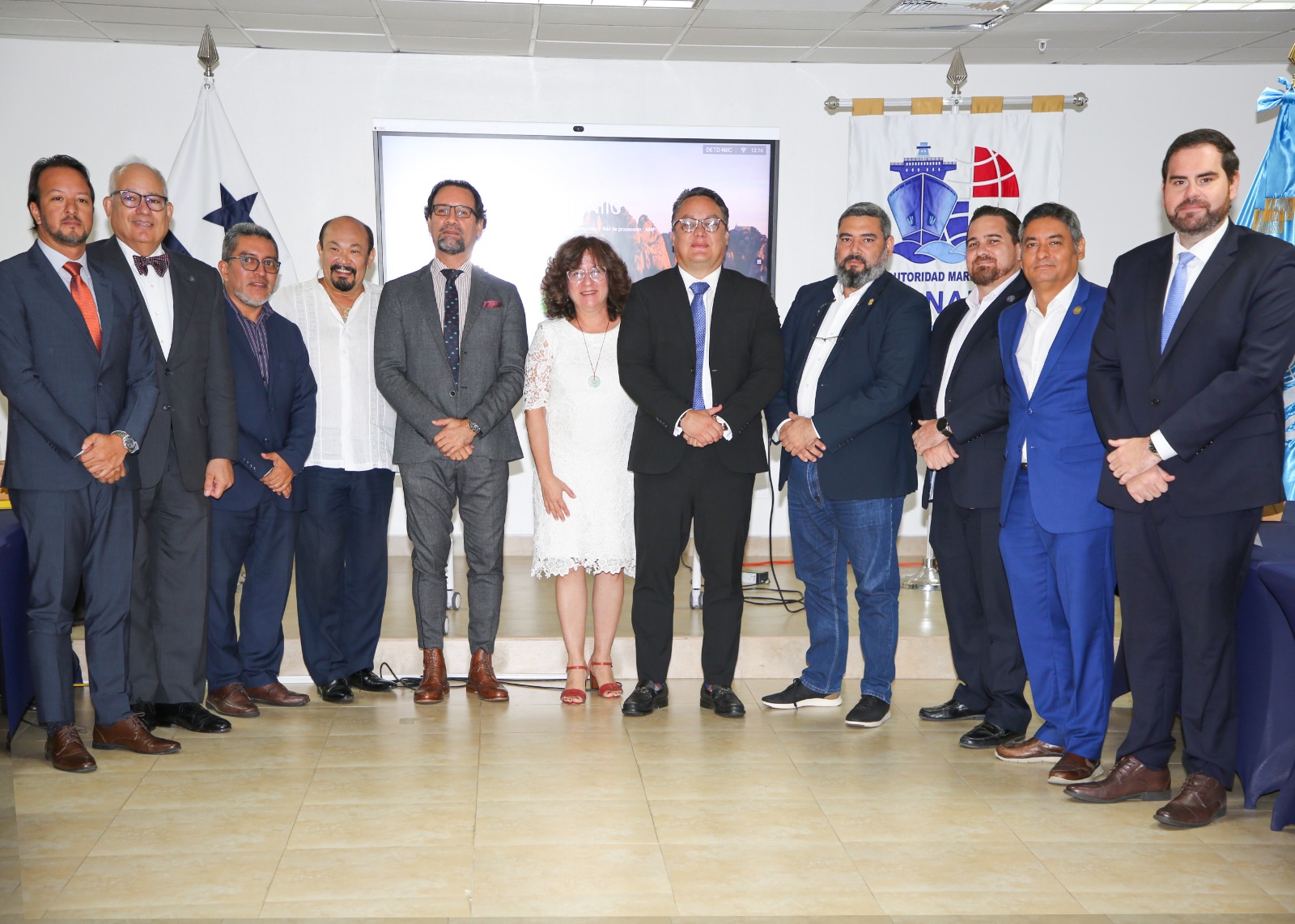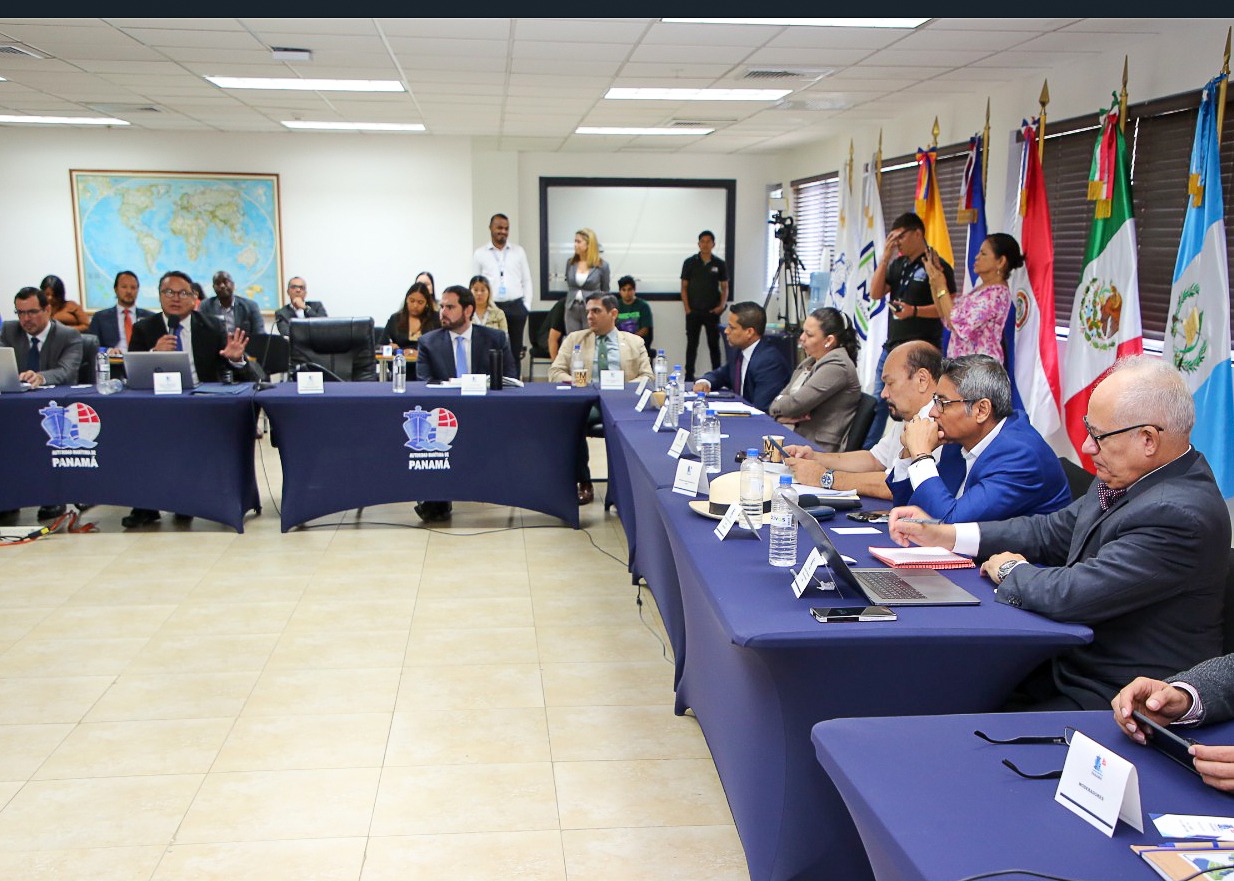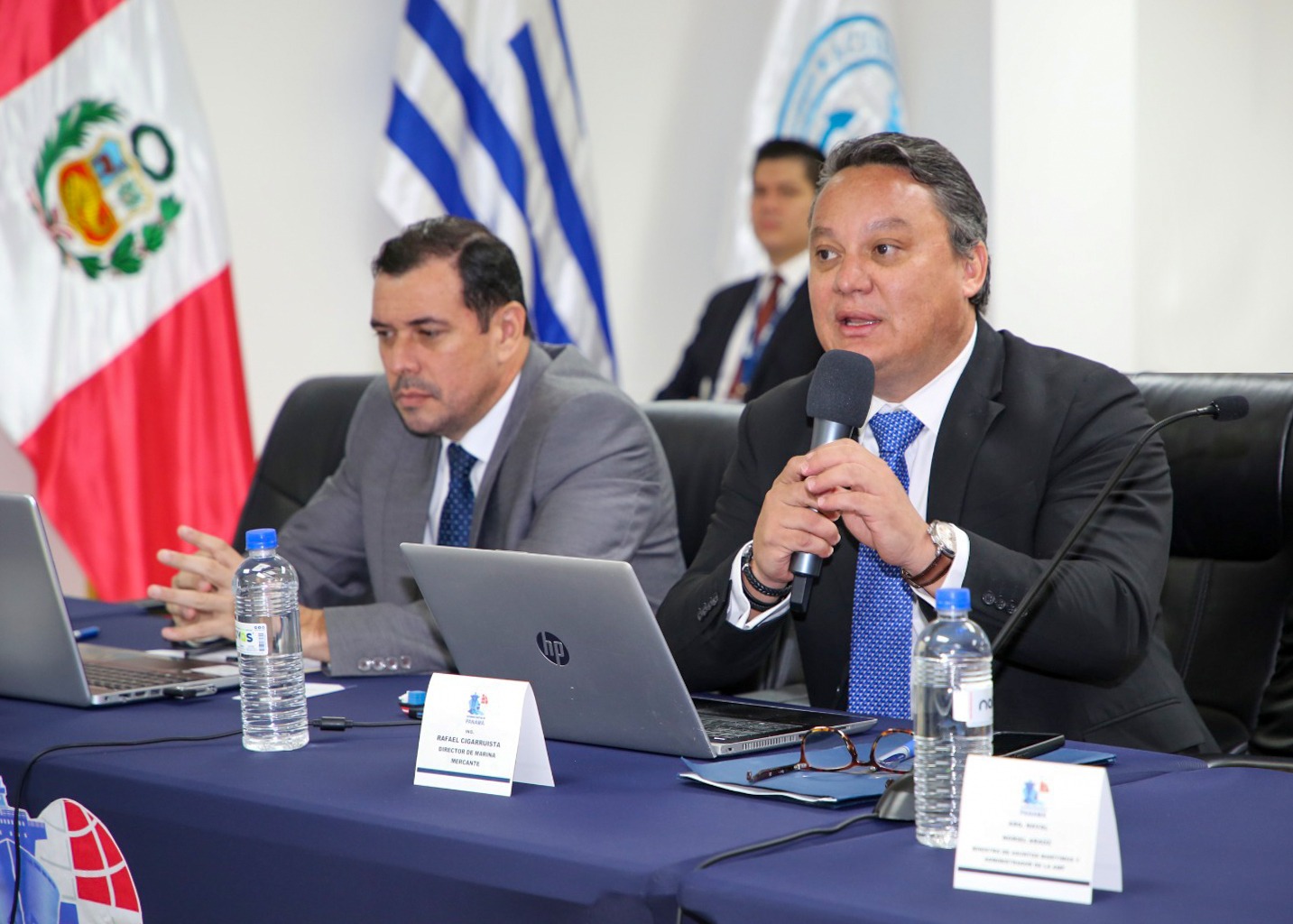The Panama Maritime Authority (AMP), together with the main maritime unions and other state institutions, concluded the meetings for the revision of Law 57 of August 6, 2008, known as the General Law of Merchant Marine. In total, 188 articles were reviewed, 70 were modified, 10 were eliminated and more than 12 new articles were proposed, all approved by consensus by the working group. These modifications seek to improve the competitiveness of the Ship Registry and keep us at the forefront in the maritime sector.
This project, considered one of the pillars of the present Administration, contemplates an aggressive and comprehensive international marketing plan, creation of new departments, reassignment of functions to existing departments or sections, adoption of new technologies, among others, accompanied by reengineering and Registry redirection.
In this sense, and within the framework of the review of the business model proposed by this administration, the need to update Law 57 to the standards and needs of the industry was determined, and a national dialogue was called, since the Ship Registry is a responsibility of all and we must maintain it as a source of foreign currency for Panamanians.
International competitiveness, the dynamic and changing nature of the international maritime sector and the business of the Panamanian State regarding the Panama Ship Registry, requires a country strategy, which must be based on A clear, transparent legislation that contributes to a sustainable growth of activity.
It should be noted that this update and review began in 2020, and for this year 2023, it is proposed to have a complete review and an updated standard that provides answers to its clients and adjusts to the international market so that the Registry can compete in fair conditions of equality with other non-state registries that present innovative options to shipowners.
In this sense, it was possible to include several innovative and positive topics in the revision of the law, among them:
- Obtaining the Navigation License through a direct process, without the need to obtain a provisional navigation license. This generates compliance, saves expenses and efficiencies in the process of obtaining the title of property, and registration of the mortgage of the ship.
- The elimination of the expiration date of the regulatory navigation patent and the regulatory radio license for international service vessels, which provides benefits to the client and places us in a more competitive position in the market, which generates a single registration number in the ships, resulting in better control, and monitoring in the administrative and documentary part of the Ship.
- The modification of the notification process within the administrative framework of the General Directorate of the Merchant Marine, specifically allowing special notifications by email instead of the edicts placed in the Department of Resolutions and Consultations. This introduces agility and speed in administrative processes.
- The Registry of Resident Agents of National Merchant Marine Ships is created, which makes it possible to identify measures that will strengthen due diligence and the obligations that must be met in the international arena. This generates better control and management of the resource.
- The obligation to previously register the property title of the seller of a ship within the procedure of change of ownership is established. This guarantees greater transparency and security in transactions.
- Legal certainty is reinforced for mortgagees of ships registered in Panama. From now on, the cancellation of a ship will not affect the validity of the mortgages previously registered in the General Directorate of Public Registry of Ship Ownership of the Panama Maritime Authority (AMP).
- To promote the growth of the Panamanian fleet, a new Incentive Regime is proposed.
The working group was made up of various members of the maritime sector, unions and public entities such as the Ministry of Foreign Affairs (MIRE), the Public Registry of Panama (RPP), the National Aeronaval Service (SENAN), the Aquatic Resources Authority ( ARAP), the Panamanian Association of Maritime Law (APADEMAR), the National Bar Association (CNA), the National Association of Seafarers (CONAGEMAR), the Panamanian Association of Marine Officers (APOM), the Panamanian Shipowners Association (ARPA), Recognized Organizations (IARO), the Panama Maritime Chamber (CMP). For the order and transparency of this project, we had the support of the Inter-American School of Social Dialogue and Tripartism of the University of Panama (EI-DiSTReC).


 Consulate General of Panama
Consulate General of Panama 

